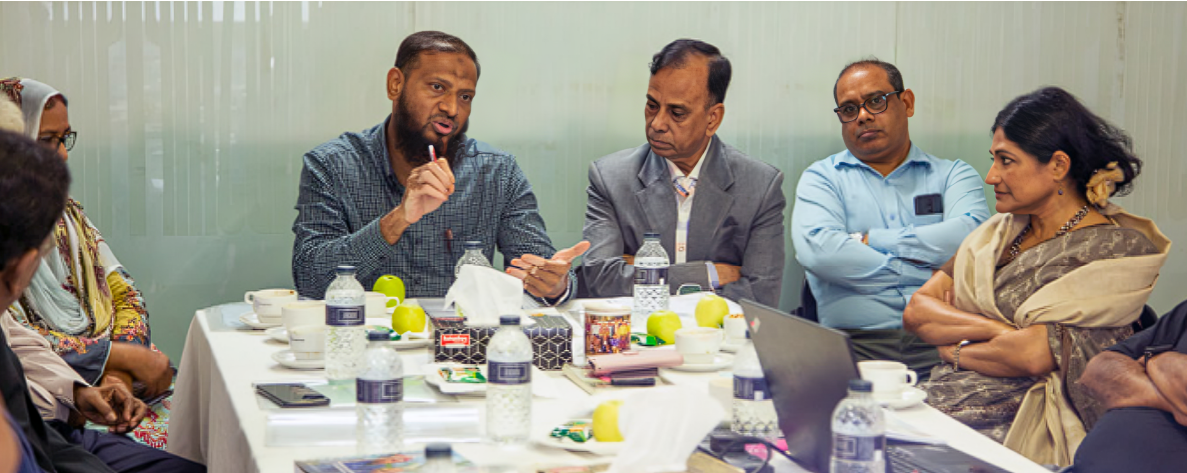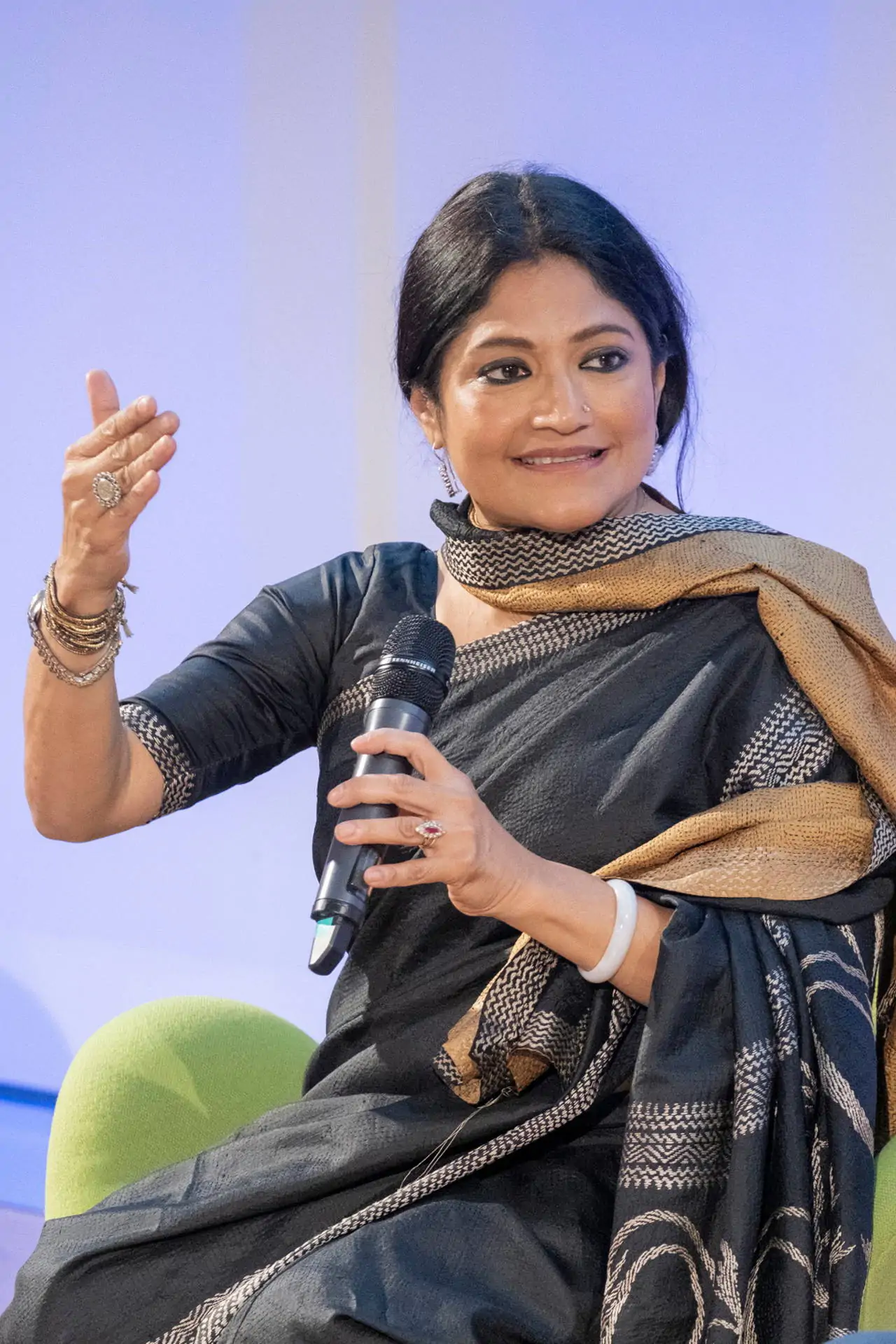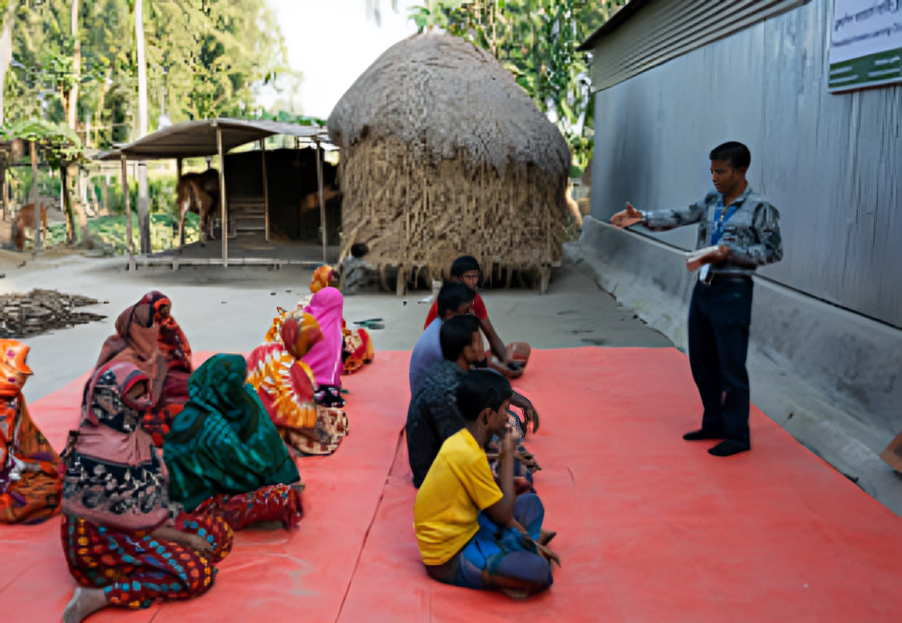STRUCTURE & LEADERSHIP
APDS has a 21-member general body that approves annual plans, budgets and employs external audit firms to ensure accountability and transparency as a whole.
The organisation has also an Executive Committee (EC) of seven members who guide management in implementing its actions to achieve its mission. The EC meeting is held every quarter to review plans and set strategies to achieve them.
General body
The General Body is the highest policy-making body of the organisation. All members of the Executive Committee are also the members of the General Body. The body includes twenty-one learned, experienced and distinguished persons from various professions. At the Annual General Meeting, members of the General Body evaluate all APDS activities and approve future plans and budgets. In addition, the General Body elects the seven-member Executive Committee every three years.

Executive committee
The APDS has an executive committee of seven members to execute plans and to carry out its functions. The Executive Committee conducts activities, formulates policies, makes important decisions, and performs a variety of approvals. The Executive Committee meets regularly—at least once every quarter, to review the activities of the organisation and take necessary decisions.
| Name | Position |
|---|---|
| Runa Khan | Chairperson |
| Enayet E Rabbi | Vice-Chairperson |
| Molla Md. Abdul Baset | Secretary |
| Muhammed Shameem Reza | Treasurer |
| Tarik Sayed Haroon | Executive Member |
| Mahbuba Hoque | Executive Member |
| Md. Rafiqujjaman | Executive Member |

Microfinance is an instrument that many organisations have used successfully to transform the lives of people in Bangladesh and around the world. However, some of the most climate-impacted and impoverished regions in the country remain deprived of financial services—even though these are the communities that are in the direst need. The sheer distance and inaccessibility of these regions and the extreme economic difficulties faced by the communities, make it far more difficult to extend services here.
These barriers notwithstanding, there is no alternative to creating economic opportunities for communities that are the most marginalised and unaddressed. True progress in any society or country is represented by the progress of those who are least privileged within it. APDS has taken up this important mission, to take financial services to the most impoverished and marginalised communities.
Runa Khan
Chairperson

One special commitment of APDS is to include the most marginalised sections of society living in the country’s remote areas, in mainstream development. We have a solid determination to translate this commitment into action. The organisation is currently undertaking active initiatives to extend its scope and reach. It is needless to mention that various challenges lie before us. For instance, we have yet to ensure the smooth fund flow that is instrumental in sustainably achieving our desired goals. We look forward to innovative strategies, renewed spirit and reformed mindsets to rejuvenate and accelerate our programmes.
Md. Monerul Islam Khan
Chief Executive Officer

Strategic partner
There is a unique bond between APDS and Friendship. Friendship is known for its flagship health program (floating hospitals dedicated to river island communities), and its other sectors of work, climate action, inclusive citizenship, sustainable economic development, and education for climate-vulnerable people, especially in the chars (river islands). Friendship initiated microfinance programme as a pilot back in 2007/8, and subsequently shifted its microfinance portfolio to APDS, which in due course got a license from MRA.
APDS still serves poor communities from Friendship’s working areas, holding the same vision to assist the most under-served communities. So far, the SED sector of Friendship provides training to farmers and APDS advances loans to those farmers so that the capacity building and finance work hand in hand.
In addition, Farmer’s Clubs are meeting places for farmers for developing capacity building and knowledge transfer. The agricultural extension services are also being carried out by trained and experienced field facilitators.
